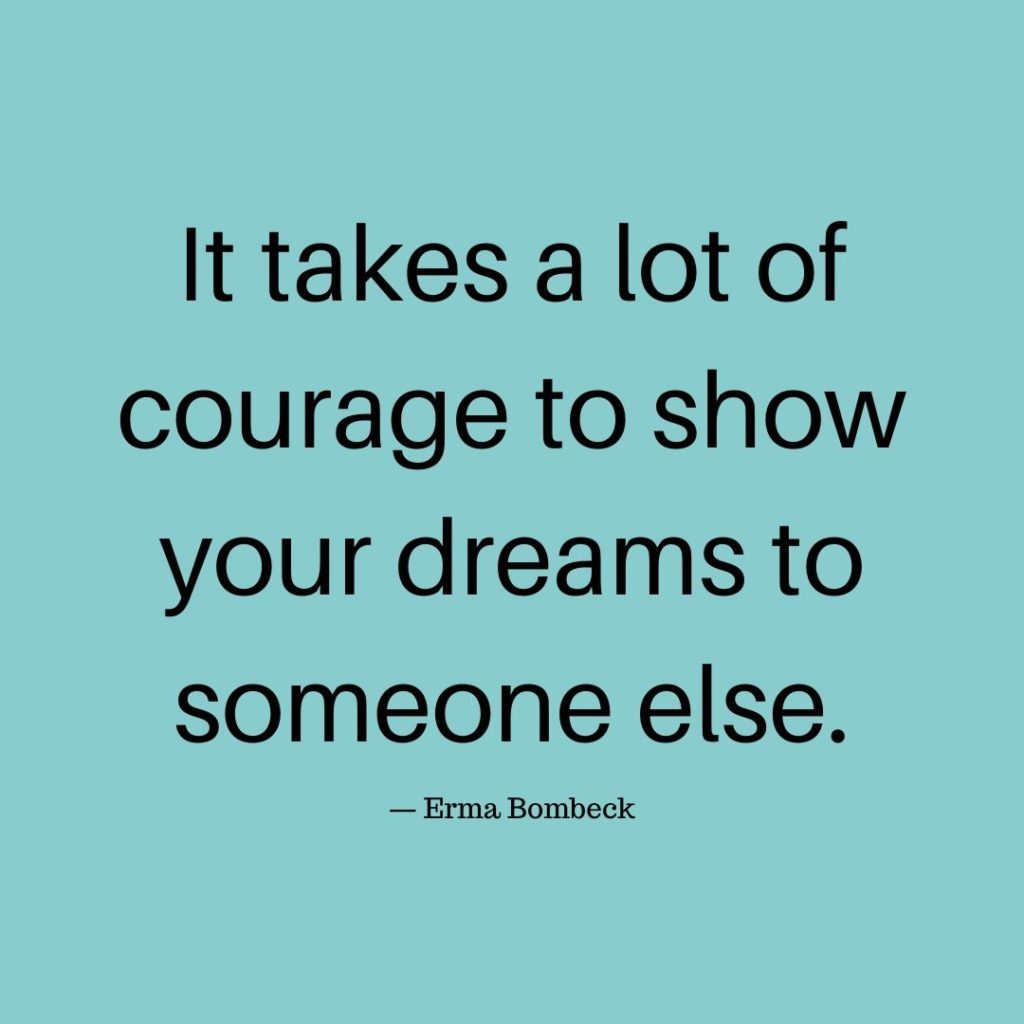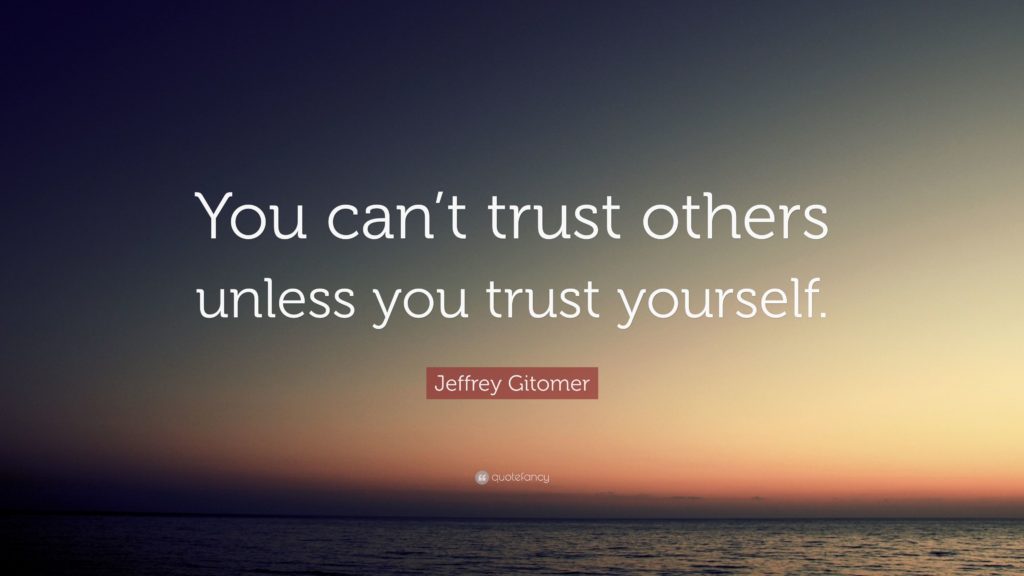
Trust is the foundation of all relationships. Knowing who is worthy of your trust requires discernment and deliberate choice. There five rules will make this process easier when deciding if someone can be genuinely trusted and if you can count on them. (Estimated reading time: 6 minutes)
“When someone shows you who they are, believe them the first time.”
— Maya Angelou
“Et tu, Brute?”
These were the famous last words uttered by Julius Caesar, one of history’s most victorious generals and statesmen, known for his strategically planned military campaigns, which significantly expanded the Roman Empire and fortified its borders.
Even a genius such as he couldn’t foresee the culmination of events that led to his controversial assassination, which was orchestrated by one of his closest confidants, Brutus.
At a time when the surreptitious revolt against the famous Roman emperor was reaching its peak, Caesar found himself embroiled in a plot, organized by a group of malevolent senators who savagely murdered him.
Not only was Caesar shocked by the violent opposition, but he felt severely betrayed by Marcus Brutus, whom he had trusted. His sadness was palpable in his last words: “Even you, Brutus?”

The reality is that history is filled with stories of treachery where trust was broken in all kinds of contexts – romantic relationships, political arrangements and family connections. Even within your own personal history, chances are high that you’ve been let down, at certain points, by individuals you once trusted.
I certainly know what it feels like to have your trust broken, having encountered some people with manipulative tendencies. I wasn’t street-smart and I preferred to giving others the benefit of the doubt. I would see a person’s potential and project an ideal onto them whenever they demonstrated even the slightest resemblance to what I had in mind.
After some painful experiences, I gradually began to grasp the rules of the game when it came to trusting others, and the importance of remaining objective when evaluating others’ behavior. The knowledge that I gained was crystallized once I read Life Code by Dr. Phil – a book I consider to be life-changing. His candid stance on maintaining a healthy skepticism when dealing with others deeply resonated with me.
In the book, he elaborates on the constellation of traits that make up the character of “baiters”, a collective term to describe people who may not have your best interests at heart. The severity of disruptive behavior runs on a continuum, from the serial killer on one end and the girl who talks behind your back on the other. Most baiters have disruptive cores due to damaged psyches from past trauma.

As much as we would like to live in a utopia where we’re assured that everyone will honor their words and live up to our expectations, that’s just not the case. The truth is that everyone, including you and me, is fallible and unpredictable, mostly due to a lack of self-awareness and the tendency to be driven by fear and ego. Although we can’t control others, there are things that we can do to protect ourselves.
We are social beings, defined by our relationships with others, and learning whom to trust is arguably one of the most important life skills to learn for our survival and emotional health. Despite what we think, most of us aren’t good judges of character and are usually too quick to trust.
Does this mean I think that everyone is out to get us? Absolutely not. Trust is something that needs to be earned by others. Because trust requires us to be vulnerable and open, few should have the privilege of witnessing that part of us and be included in our circle of trust. This requires us to establish a delicate balance between being open and protecting our interests.
We want to avoid building a wall around us because we’re afraid that others are out to get us. But you do need to operate on a level of objective awareness about what you’re sharing with others, while evaluating the intentions behind their behavior and words.

Here are five essential rules to keep in mind when deciding whether you can trust someone or not:
1. Learn to trust yourself first: Your capacity to trust is not about the other person but a reflection of how much you trust yourself and your ability to handle whatever they do. It’s impossible to genuinely trust another if we can’t trust ourselves, because fears and pain may obscure our judgment instead of healthy skepticism. That’s why you have to clean your house first before you let someone in. Deal with any lingering hurt from past experiences where your trust was broken.
2. Do your homework and don’t rush in: Many of us fall into the trap of romanticizing or idealizing a person or a situation before we have enough facts and data to infer whether the person we’re dealing with is genuine and worthy of our time. Think about it – whenever you buy a big-ticket item such as a new car or a house, you always do your due diligence by researching all aspects of the car or house before you purchase it. Why do we not do that with the people that we will associate ourselves with, whether it’s in our workplace or romantic life?
Especially in situations where the stakes are high, it’s crucial to do a background check (social media and Google are your best friends!) and to spend more time with the person you’re dealing with so that you can look for patterns and get a sense of who they really are. Maybe this sounds a tad bit stalkerish but when your psychological and emotional wellbeing is on the line, it’s worth it!
3. Don’t invest more than you can afford to lose: I’ve known some friends who, upon finding a boyfriend, disown everything else and totally center their lives around their new beau. They put all their heart, energy and soul into the relationship, which is great, but the only issue is that they isolate themselves in the process. When they broke up, they were a total mess – they were friendless and faced a loss of identity.
That’s why it’s important to be the master of your own world and to continue holding onto the keys to the most important aspects of your life – your family, health, friendships and finances. This creates a “relationship insurance” that we can fall back on in case things don’t go as planned.
4. Listen to your gut: How many times have you had a funny feeling about someone and you chose to ignore it? That feeling comes from your intuition, which is your natural guidance system, or what I like to call your inner GPS. We all have it but most of us don’t listen to it as much as we should. We allow our rational thoughts or emotions to run the show and fog our judgment in the process. Learning to trust your intuition is essential when it comes to evaluating the trustworthiness of an individual.
5. Maintain healthy boundaries: Healthy boundaries play a critical role in relationships. Without clear and well-thought-out boundaries, it can be difficult to nurture trust in any sort of relationship. Now remember that boundaries aren’t walls – they are simply agreements made to ensure that your interests and needs are being sufficiently met within an interpersonal connection. It’s an act of self-care to prevent resentment from brewing due to a neglect of your needs, and to avoid being taken advantage of.
You have a special purpose to fulfill within your lifetime. That’s why it’s important to surround yourself with reliable and uplifting people who can help you manifest your potential. Your love, time and effort should be spent on those who can reciprocate it and who want the best for you in your life!
All my best on your journey,
Seline

Question for you: What are the some of the challenges that you face when trusting others?
Did you like this post? Sign up below and I’ll send you more awesome posts like this one every week.

These are things I could have used years ago, before I invested 7 years into a friendship that ended with me having a dagger in my back. Worst thing is I kinda always knew it would end that way but I kept trying to convince myself otherwise and was ignoring the warning signs. It hurt when it finally ended and it still hurts today 5 years later…but such is life. Lessons learned I guess.
Kammi, sorry to hear about what you had to go through. Betrayal is tough to deal with, that’s for sure. But at least that free’s some space for some more genuine people to enter your life! -Seline
I know how kammi feels, been there myself. Relationships, friendships, family ties, it can all end up being a blessing or a curse. I have found that the best way to get through life is to focus on the good, try and let the bad slide off your back, and keep pressing on towards to good things that come your way.